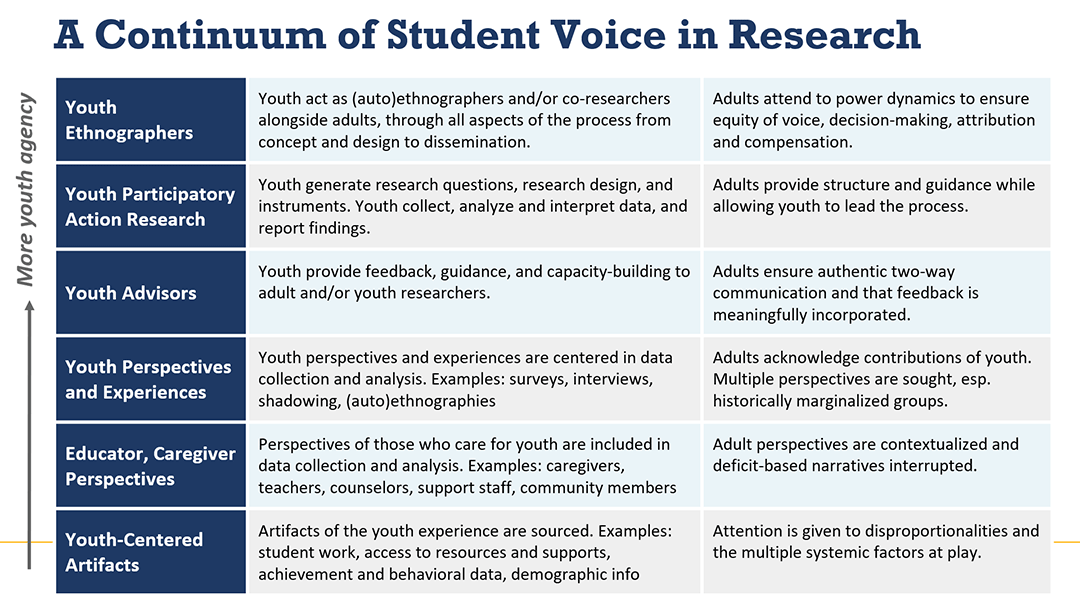Our Approach to Research
Data can be a powerful tool for understanding systems and policies but it can also easily be misused or misinterpreted in ways that further entrench inequities in our education system. Eskolta believes in using data as a means of understanding and transforming our schools into spaces defined by equity and opportunity. Our approach is designed to involve a range of stakeholders—especially students, families, and educators—turn insights into action, and develop our partners’ capacity for data-guided change-making along the way.Our approach
Using a mixed-methods and participatory approach to research, Eskolta partners with schools, districts, and community based organizations to conduct quantitative and qualitative research, identify priorities, develop metrics, collect data from classrooms, schools, and district-level systems, and produce reports designed to inform both school-level and systems-level change.
Eskolta works first with partners and key stakeholders to develop core research questions, a research plan, and key metrics. We then collect quantitative and/or qualitative data, which may include a combination of the following or other data, depending on the research design:
- Interview/focus group discussions
- Surveys
- Observations
- Student work
- Available quantitative data, e.g., course grades, school quality data
This is followed by analysis and documentation of findings. Finally, we facilitate discussion sessions with key stakeholders to support the interpretation of findings and act as thought-partners on strategic planning to turn these insights into action.
A Continuum of Student Voice
No relationship is more important to the mission of continuously improving schools than the relationship between a school’s policies and practices and its students. The following is Eskolta’s framework for deepening authentic student voice in our research and design work. Eskolta’s Youth Advisory Board helped inform the creation of this framework.

